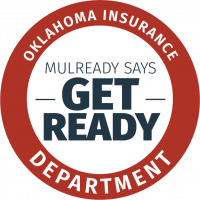Turn on a television, flip through a magazine or browse the Internet and you are likely to be bombarded with ads offering to save you money on auto insurance.
The National Association of Insurance Commissioners recommends checking your car insurance policies annually to ensure the coverages are right for your current circumstances and that you are getting the best deal. While online quotes are convenient, consider building a relationship with a local agent for personal service. If you do go insurance-shopping online, follow these tips to make that experience safer and easier.
Decide Which Coverages You Need
Auto insurance needs are unique to a person’s life situation and may change over time. One of the best things to do before comparison shopping is to brush up on the types of coverage available. A good place to start is the NAIC’s consumer education Web site InsureUonline.org. If you plan to just use your current coverages as a guide, you can still learn more about the declarations/information page of your present policy at the InsureU Web site.
A few coverage options that must match up to get an accurate comparison, quote-to-quote:
Liability Limits – Liability covers the other driver in an accident should you be at fault, so your needs are based on the total assets you have to protect. Choose a limit accordingly. In Oklahoma, the minimum liability limits under law are $25,000 for bodily injury of one person, $50,000 maximum bodily injury for all victims of the same accident, and $25,000 in property damage from a single accident.
Personal Injury Protection (PIP) – PIP pays medical expenses, rehabilitation expenses and lost wages for you or your family following an accident.
Uninsured Motorist/Underinsured Motorist (UM/UIM) – Uninsured Motorist coverage is not required in Oklahoma, but is highly recommended because our state has one of the nation’s highest rates of motorists (an estimated 24 percent) breaking the law by driving without insurance. This coverage pays if you or your passengers are injured in an accident caused by an uninsured motorist.
Deductibles – Comprehensive and Collision coverages pay for damages resulting from a covered accident. Collision coverage, just as the name sounds, covers your vehicle from traffic accident damages, while Comprehensive can pay to repair your vehicle in the event of other damages, such as a hailstorm. Neither is mandatory by law, although a lender might require them. Adding either requires you to set a deductible. This is the amount you must pay if the covered vehicle is damaged, so evaluate how much you could afford to pay out-of-pocket in an emergency situation. Generally, the higher the deductible, the lower your monthly premium.
Optional Coverages – These might include anything from rental car coverage to towing services. If you are a member of AAA or another auto club, you might have such coverage already.
Before Your Start Answering Questions
To receive an accurate rate quote, be prepared to share information from your current auto policy, the license of each household driver and your vehicle’s registration.
There are a variety of sites that offer auto insurance quotes. Some have rates for a specific company while others let you fill out a single form to receive rates from several companies.
Before getting quotes online, note:
Due to coverage requirements, it isn’t always easy to get a quote online for any state.
Some Web sites will send your personal information to an agent in your area to quote and write the policy.
Not all Web sites provide immediate quotes. In some cases a company representative will call to confirm the information before providing a rate. In this case, ask to have the information e-mailed for your records.
If all the quotes do not have matching coverages and limits, contact the companies and ask for a revised estimate.
Some Web sites are authorized to make coverage available immediately, while others cannot, even if you have made a premium payment.
Once you have made a payment for the policy, you should have access to a temporary identification card to keep in your car. Permanent cards and a copy of the policy should come in the mail within 60 days. Some insurers will issue the policy electronically if you mutually agree to communicate this way.
Completing the Quote Request
Full disclosure is required, as the relationship between you and your insurer is one of mutual trust. Here are a few things that require close attention:
Drivers/Operators – Include all drivers in the quote. If you fail to disclose household drivers and they are behind the wheel in an accident, the company could cancel or non-renew the coverage going forward or charge additional premiums.
Driving Record – Generally, insurance companies ask for three years of driving history and will use a Motor Vehicle Report (MVR) to check the driving record of all named drivers. The company might also use a Comprehensive Loss Underwriting Exchange (CLUE), Colossus, or a similar report to check claims histories. Some companies rate your premium by measuring at-fault accidents and traffic violations (often called “risk classification factors”). Further, MVRs do not always reflect fault. Check all quotes for discounts or surcharges based on your driving history and risk classification factors.
Do Some Investigating
The lowest quote might not always be the best choice, so before making a payment, do your homework. Start by talking with friends and family about their auto insurance experience. If they are insured by a company you are considering, ask about their best and worst experiences.
Then, check online at oid.ok.gov to verify that the company and agent (if you are
dealing with one) are licensed in Oklahoma. You should also inquire about complaints made against the company. The firm’s complaint ratio will show how the company stacks up against other auto insurers in Oklahoma.
For more information about buying auto insurance, download “The Consumer’s Guide to Auto Insurance” at InsureUonline.org, or visit the Oklahoma Insurance Department at http://www.ok.gov/oid/

